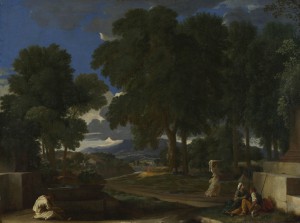To Benjamin Apthorp Gould Fuller
45 Chesterton Road
Cambridge, England. November 10, 1913
This place seems to me this year to have a new beauty. For one thing we have had a wonderful spell of golden autumn weather, with the most beautiful afternoons, like landscapes by Poussin, and the lower River, with the trial eights and the fours has been gay and amusing in the way you know very well. I walk sometimes with Dickinson (fuller than ever of Chinese sweet-reasonableness) or with Lapsley, in whose rooms I sometimes meet the flowering undergraduate of the period—very smiling, as they didn’t use to be, half stifled with little emphatic bursts of enthusiasm, and vaguely earnest about socialism, Ulster, land-reform, his next essay, or his next match. It is all a little flighty and girlish, and one has to let it blow past like a gust in a garden. I somehow feel more foreign in England than I did fifteen years ago or even ten years before that, when I was first here. It seems rather an unseizable life, without ideas or achievements clear and notable enough to appeal to the outsider. It is a chaos of half-measures and immediate aims; and even the philosophers are casual, personal, intense only in spots, and essentially heretical. All roads still lead to Rome and unless you place yourself there you will never be in the heart of the world or see it in the right perspective. To be a Protestant is to be cross-eyed. In America that doesn’t matter, because there is nothing to look at there, but here, where every thing has depth and is historical, it makes priggish limping scholars, and funny squeaking one-eyed philosophers. To make amends, I see there is really a little poetry being written in England; it is amiable, sincere, tender, manly. Read the collection “Georgian Poetry, 1911-1912. published by the ‘Poetry Bookshop’”.
From The Letters of George Santayana: Book Two, 1910-1920. Cambridge, MA: The MIT Press, 2001.
Location of manuscript: The Houghton Library, Harvard University, Cambridge MA

